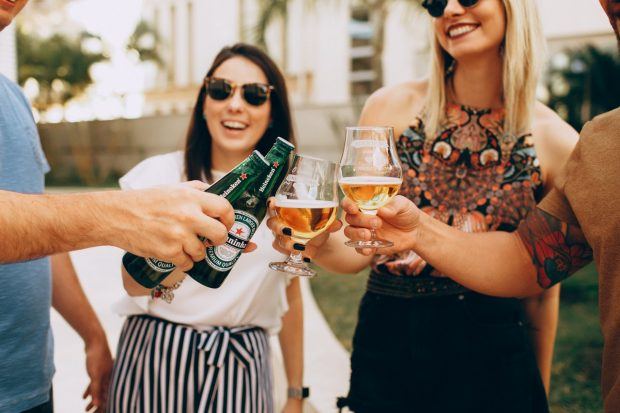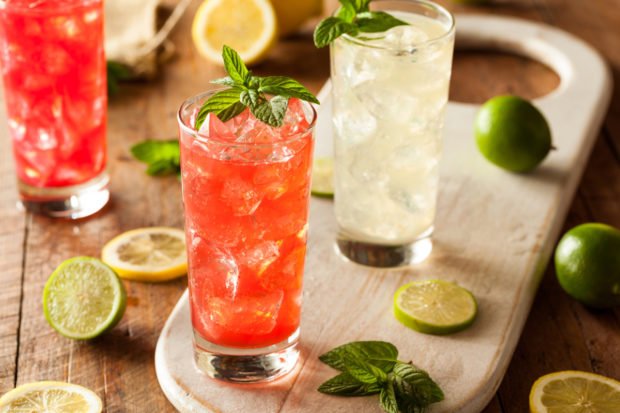Search traffic for mindful drinking increased by 69% on Google this past month. That’s good news explains Martin Preston, Founder and Chief Executive at Delamere one of the UK’s leading authorities in addiction treatment. In this post, he shares some exclusive insights to help you achieve safer, mindful drinking.
New research has shown that more than 70% of people who committed to going ‘dry’ for a month continue to make healthier lifestyle choices when it comes to alcohol intake long after January.
We’re living in a wellness revolution and sober is ‘cool’, these days. Not drinking is a trend, no doubt, and it’s no longer the reserve of those who’ve had a problem with alcohol, either.
Follow the safer drinking medical recommendations
The Chief Medical Officers’ low-risk drinking guidelines state that regardless of age or gender, you should consume no more than 14 alcohol units a week and that these units should be spread out evenly over seven days.
To put this in real terms, 14 units is the equivalent to 6 pints of standard 4% lager, 6 standard glasses of 13% wine or 14 shots of a spirit.
If you follow the safer drinking medical recommendations, you can still enjoy alcohol, but without the risks associated with drinking too much.

Photo by Helena Lopes from Pexels
1. Try to incorporate alcohol-free days around special occasions
It’s important to have alcohol-free days to give your liver a rest and allow your body to flush out alcohol toxins. Drinking daily, especially when more than a couple of units, causes your liver to work less efficiently. The more alcohol you consume, the bigger the toll it will take on your body resulting in you feeling sluggish and suffering from a low mood.
Avoid using birthdays or special occasions as an ‘excuse’ or ‘reason’ to have a drink every day.
Also during the week, feels like it’s dragging, often many will get to Wednesday or Thursday and fancy a few drinks after work. Whilst it’s ok to have one or two with dinner, going out and binge drinking throughout the week is not! This will not only contribute to your weekly units adding to the ones you may consume on the weekend but also make you feel extra exhausted at the end of the week.
It’s important to be wary of any important work meetings you may have. Allow your body to get a full night’s rest which isn’t interrupted by alcohol consumption.
2. Be aware of the alcohol content in the food you consume
Traditionally alcohol is added to many party foods such as chocolate, sauces, desserts, and even gravy. Whilst the alcohol content is usually quite low, combining these foods with alcoholic drinks will soon make the units stack up.
3. Avoid drinking on an empty stomach
Eating a decent meal before drinking will slow down the absorption of alcohol, and you will also be inclined to drink less if your stomach is already full. Alcoholic drinks such as wine and spirits are very acidic and can cause harm to your stomach’s lining when consumed on an empty stomach or in large amounts.
4. Opt for low alcohol or alcohol-free drinks
Instead of automatically reaching for whatever alcoholic drink is available to feel part of the celebrations, try some mocktails (alcohol-free cocktails). There are many kits and recipes out there where you can experiment. Make it fun by challenging the whole family to produce the tastiest mocktail. This will take the focus off alcohol, and you may even find a drink that you prefer over alcoholic beverages.
 5. Water in between drinks
5. Water in between drinks
Alcohol makes the body extremely dehydrated, lowering your immune system and energy levels, particularly the next day.
It’s an age old rule. Drinking glasses of water in between drinks will help keep hydration levels up and also quench your thirst, which will stop you from sipping your alcoholic drink too quickly if thirsty.
It also helps to drink water before you go to sleep, too, as it helps your body rehydrate and repair during the night.
6. If you’re drinking – do not drive.
Drunk driving causes many fatal accidents every year. If you have consumed alcohol the night before, remember that it takes the liver on average 1 hour to process 1 unit of alcohol. When you binge drink it takes even longer as the liver struggles to cope with the backlog of alcoholic units.
Driving the morning after and in some cases even the next day, you could still be over the drink driving limit. If you want an alcohol-free day, volunteering to be the designated driver is the perfect excuse not to drink.
7. Take steps to ensure your safety whilst drinking
When we drink alcohol, our inhibitions and sense of judgment are impaired. This can easily lead to making spur-of-the-moment decisions that are later regretted. If you are going out drinking, make sure that someone knows where you are, what time to expect you back, and that you have pre-arranged a safe mode of transport home. This applies to both men and women, both sexes are very vulnerable whilst under the influence of alcohol.
8. BYOSD (Bring your own soft drink)
If you have an NYE family Zoom party lined up, bring your own soft drink. You can then either stick to drinking these or alternate between alcoholic drinks. Don’t rely on others to provide you with an alternative to alcohol, it is always best to be prepared and take your own. If you are worried family will pressurize you into drinking more than you would like, it is very unlikely that they will even notice or care if you are alternating or drinking a zero alcohol alternative.
9. Avoid stocking up on alcohol
Traditionally, many people stock up on vast amounts of alcohol just before the festive period to have a selection of different alcoholic drinks to offer guests.
The risk that comes with this is that there will be a constant supply of alcohol in your home that will be all too easy to drink.
You are also much more likely to mix your drinks, which can lead to losing control of the amount of alcohol you consume. Instead have a selection of drinks that are of standard strength in units and a selection of non-alcoholic drinks that you can alternate with.
10. Feeling confident to say no to alcohol
When someone offers you an alcoholic drink, it can feel easier to accept, simply to avoid any awkwardness. However, if you have made the decision to order sparkling water, feel great about it and own it.
About the author
 Martin Preston is the founder and CEO of Delamere Health.
Martin Preston is the founder and CEO of Delamere Health.
Delamere Health is a private rehabilitation clinic based in Cheshire, the UK which combines state-of-the-art facilities with innovative treatments for those with addiction.





![women [longevity live]](https://longevitylive.com/wp-content/uploads/2020/01/photo-of-women-walking-down-the-street-1116984-100x100.jpg)










